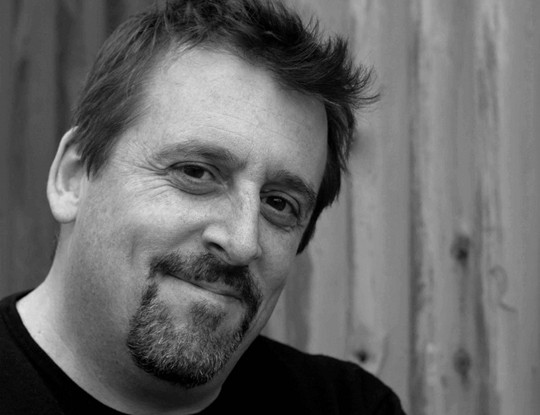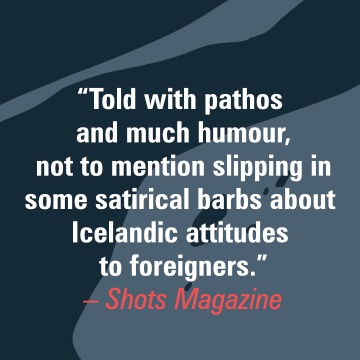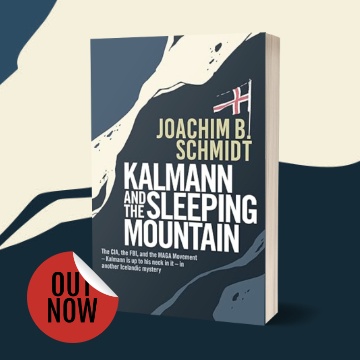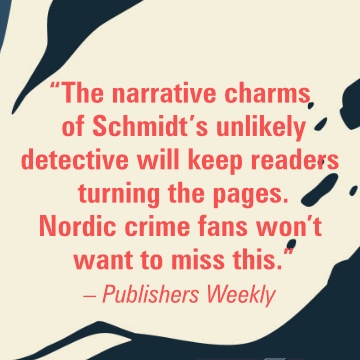 This month saw the release of Melbourne-based author Andrew Nette’s debut novel, Ghost Money, a driving work of modern noir set against a background of political upheaval and rampant gangsterism in 90s Cambodia. Andrew has been our Australia correspondent for a while now, writing on CFL as PulpCurry. His first novel was a long time in the making, and we can report that it’s a quality piece of crime fiction with a unique Asian setting. So we had to ask him few questions about it…
This month saw the release of Melbourne-based author Andrew Nette’s debut novel, Ghost Money, a driving work of modern noir set against a background of political upheaval and rampant gangsterism in 90s Cambodia. Andrew has been our Australia correspondent for a while now, writing on CFL as PulpCurry. His first novel was a long time in the making, and we can report that it’s a quality piece of crime fiction with a unique Asian setting. So we had to ask him few questions about it…
So, tell us a bit about Ghost Money…
Ghost Money is set in Cambodia in 1996. The long-running Khmer Rouge insurgency is fragmenting with competing factions of the unstable coalition government scrambling to gain the upper hand. Missing in the political chaos is businessman Charles Avery. Hired to find him is Australian-Vietnamese ex-cop Max Quinlan. We soon discover Avery has made dangerous enemies and Quinlan is not the only one looking for him.
What prompted you to set the book in Cambodia?
I started writing the book while I was working in Cambodia as a journalist in 1996. I’d first visited the country earlier in the decade and was fascinated by it. I always thought Cambodia would be a good setting for a crime story. The things that happened, good and bad, you couldn’t make up if you tried. But I also wanted to capture some of the country’s tragic history. Ghost Money is a crime novel, but it’s also about Cambodia in the mid-90s, a broken country, and what happens to the people who are trapped between the cracks between two periods of history, the choices they make, what they do to survive.
How did you go about researching the area?
I drew heavily on my time as a journalist in the 90s and my reading of Cambodian history. My family and I spent 2008 in Phnom Penh, during which, amongst other things, I did quite a bit of on the ground research for parts of the book. I also spent quite a bit of time just hanging out and talking to people, especially the locals, picking up nuances and colour whenever I could.
What were the challenges of fictionalising a highly sensitive political situation?
I’m not sure what happened in the 90s regarding the break up of the Khmer Rouge is all that sensitive now. The aspect of the book that is potentially far more sensitive is that my lead character is Vietnamese-Australian. For various reasons the Vietnamese are intensely disliked by many Cambodians, something I wanted to use to inject an even greater sense of tension into the book.
While I didn’t want to get hung up on having everything historically accurate, I thought it was important to make the story as authentic as possible as part of respecting the people whose country I was setting the novel in.
We’ve had Nordic Noir and Tartan Noir, has Asia got what it takes to be the next big thing?
You’d think so, but there’s not much sign of it. I don’t want to generalise about such a big area, but there’s so much going on in Asia that would make the basis of good crime fiction and so few people, relatively speaking, writing about.
I know you’re a huge pulp fiction fan, is that what initially drew you to crime writing?
I hold my late father responsible. Along with a lot of men in the 50s and 60s, Dad loved Carter Brown and Larry Kent. He also had a thing for Mickey Spillane, John MacDonald and Ian Fleming. Even as a child, Dad’s collection of crime paperbacks fascinated me. I loved their lurid cover art, the seamy cadence of titles like Nobody Loves a Loser and Bid the Babe Bye-Bye. I used to spend hours in Dad’s den studying the covers and flicking through for salacious bits.
As one of the founders of Crime Factory Publications how do you feel about where Australian crime publishing is right now?
The fact that we are a small market is always going to create challenges for Australia. Creating sustainable publishing economies of scale is difficult. We also have a very small cultural memory-making machine, if I can put it like that. Hence while there’s some great local crime fiction being published, a lot of what is being picked up is confined to safe sub-genres – cosies and police procedurals. That’s understandable because that is what sells. But I can’t help but think there is a lot of interesting stuff out there that is being missed. Compounding this situation, we’re still mired in the anachronistic debate about digital versus traditional publishing. You only have to look at the nominees in this year’s Ned Kelly Awards for Australian crime writing to see that this is all starting to change, but it is slow.
What’s coming up next for you?
I’ve got a couple of books I want to get started on. One is a sequel to Ghost Money. The other is a heist story set in Australia, Thailand and Afghanistan. Also, Crime Factory has an anthology of Australian fiction and a novella coming out in the next couple of months, amongst other things.








